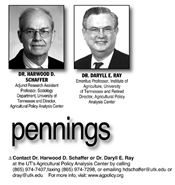|
Will Increased Exports Of US Milk To Canada Provide Price Relief For US Dairy Farmers?

One of the most contentious issues between the US and Canada in the development of the United States-Mexico-Canada Agreement (USMCA) was the milk supply management program operated by the Dairy Farmers of Ontario (DFO) that sets limits on various forms of milk imports. In the end, Canada agreed to increase the import of milk from the US.
But, apparently that was not the end of the issue. On June 12, 2019, as a part of his statement delivered to the Trade Policy Review in Geneva, Switzerland, US Ambassador Dennis Shea, Deputy US Trade Representative, said, “The United States encourages Canada to review its agricultural policies that impose excessive tariffs and restrict imports of supply-managed dairy, poultry, and egg products. Reducing barriers to trade would benefit consumers in Canada and help increase the competitiveness of Canadian industries. Further, the United States would also underscore the importance of transparency in dairy pricing policies and any new assistance to dairy farmers and processors, so that Members can be assured of Canada’s compliance with its WTO commitments.”
We certainly understand the frustration of those US milk producers while facing extremely low prices see any additional export demand as a move in the right direction.
The number of small milk producers in the US has rapidly dwindled in the last couple of decades as mega dairies have increased significantly. While there were 105,170 dairies in the US in 2000 and the average number of cows per farm was fewer than 100, today there are fewer than 40,000 dairies and the largest dairies milk from 5,000 to 30,000 cows.
From our perspective the problem in the US is not the dairy trade policies of Canada and the work of the DFO to protect its farmers. The problem is that adding one or two 20,000-30,000 dairies can wipe out any gains that are made in terms of exporting more milk to Canada.
The US dairy problem is one of overproduction. As a result, there are questions we need to answer. How do we want to manage dairy overproduction in the US? What kind of dairy production system do we want? Is our goal to have the cheapest milk production in the world?
We may not be able to go back to the dairy farms of the 1950s, but what do we want as dairy farmers and consumers?
When speaking to farmers, the two of us often are told the story that there are only two people in the US who understand dairy policy, and they don’t agree.
We are quick to admit that while we may know our corn, beans, cotton, rice, and wheat, we are not dairy policy experts. But we do know what is at stake. Given the trend, unless we make some changes, the dairy industry will soon look like the broiler and egg industries – dominated by a small number of vertically integrated firms. Is that what we want?
We also know that the difference between row crops, like corn et. al., and dairy is that there are only so many productive units for row crops. The US is cropping area is limited to somewhere between 250 and 350 or 400 million acres. Beyond that productivity goes downhill very quickly.
With dairy, how long does it take to hold out some additional heifers and add a couple of more 20,000 cow dairies? Can you say, in the blink of an eye? It will take longer to get the permits, build the buildings and install the equipment. That is why the Reagan Dairy Buyout ultimately failed to restore prosperity to the dairy sector. It is too easy to add cows and very hard to manage production.
So, what do we want as dairy farmers and a nation of increasingly demanding consumers? It is not up to the two of us to answer that question in isolation. It is up to all of us. As we listen to people who are asking for our vote, we need to have questions for them. What kind of agricultural policy do they envision if they were to be elected? And the same goes double for dairy policy. ∆
DR. HARWOOD D. SCHAFFER: Adjunct Research Assistant Professor, Sociology Department, University of Tennessee and Director, Agricultural Policy Analysis Center
DR. DARYLL E. RAY: Emeritus Professor, Institute of Agriculture, University of Tennessee and Retired Director, Agricultural Policy Analysis Center
|
|